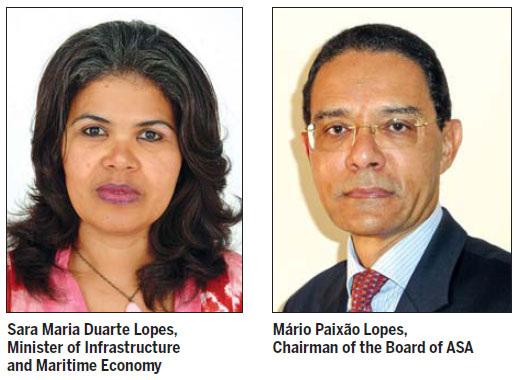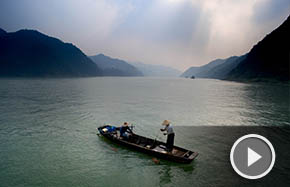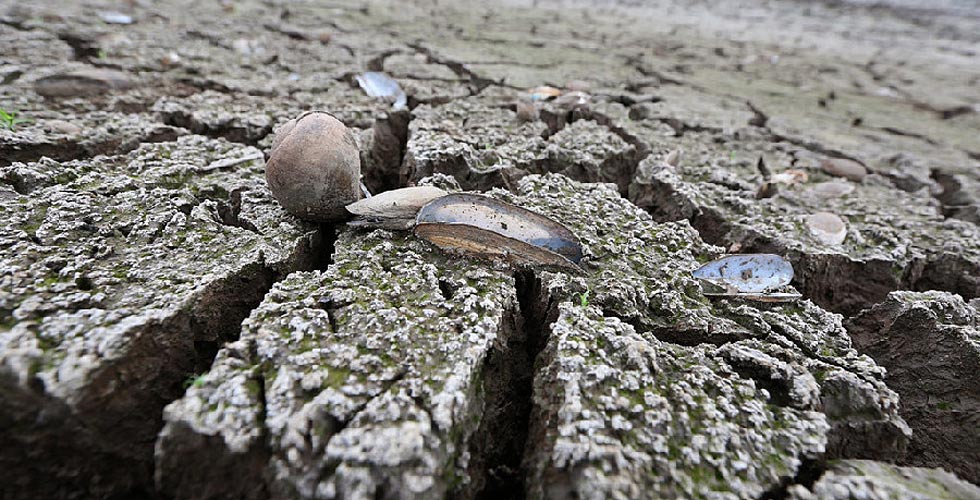Stunning archipelago is tourism and investment magnet
Updated: 2013-03-01 07:14
(China Daily)
|
|||||||||||
|
The four-star Pestana Trpico Hotel in Praia. Reservas.tropico@pestana.com |



Cape Verde is on target to attract more than 1 million foreign visitors by 2015
Over the last 15 years, the Cape Verdean economy has grown strongly and is fast-becoming a regional hotspot for international trade, investment and tourism. To manage this growth, millions of dollars have been invested in the modernization of the ports, airports and highways on each island.
"We are an archipelago of 10 islands - nine of them inhabited - beautiful beaches and diverse landscapes that offer a great deal of potential for tourism," said Minister of Infrastructure and Maritime Economy Sara Maria Duarte Lopes.
"We are investing in the air traffic control system and proudly boast one of the best air traffic controls in the Atlantic. Cape Verde has made generous investments in training equipment and human resources. We have a framework that ensures we have a safe aviation system. The airport of Praia is also subject to a new phase of expansion.
We aim to become a hub of Cape Verde cargo and passengers."
According to Minister Lopes, China has adopted a "very smart" strategy towards Africa as there is huge potential that needs unlocking with the help of an experienced partner like the Asian powerhouse.
"We have invested in ports and airports and are thinking of privatizing port operations," she added. "The main ports are already prepared for this and if a company or country show interest in investing in a deep-water port then we are open to discussion."
State-owned ASA, Cape Verde's civil aviation authority, is responsible for the managment of air traffic and cargo terminal, and air safety, as well as activities and services related to facilities and navigation. Since 2001, ASA has developed two comprehensive business plans containing clearly defined strategies and objectives to modernize the airport infrastructure and navigation systems.
There are four international airports in Cape Verde - Amilcar Cabral International Airport (also known as Sal International Airport or Amilcar Cabral Airport), Rabil International Airport, Praia International Airport and Sao Pedro International Airport - each of which has received millions of dollars of fresh investment in recent years.
Record tourism arrivals
The number of passengers using Cape Verde's airports and aerodromes increased 11.2 percent in 2011, rising from 1.6 million to 1.78 million. International traffic grew 20.8 percent year-on-year to 901,000 passengers, while domestic passenger numbers grew 2.8 percent year-on-year to 882,000.
One of ASA's key goals is to boost the number of international arrivals to one million by 2015.
Sal International handled the largest amount of passengers with 576,000 flyers arriving or departing last year, 364,000 of whom were on international flights (up 12.1 percent year-on-year) and 212,000 on domestic flights (down 1.7 percent year-on-year). The number of international arrivals reached 403,000 in 2012.
One of the key challenges ASA and other companies operating in Cape Verde face is the lack of world-class human resources. Many institutions from both the public and private sectors have to send their staff on overseas courses to equip them with the necessary tools to perform and compete at a high standard.
Capacity building is a top priority for ASA and the whole economy and company chiefs in the public and private sectors are eager for enterprises and business professionals from China to invest in the country and share their valuable skills and experience with the local workforce.
"In Cape Verde, we have four international airports that have been developed in order to boost the level of airport services, create strong links with more developed countries, and prepare the country for a more sophisticated tourism industry, and prepare the economy for further investment, thus making Cape Verde more competitive internationally," stated ASA Chairman of the Board, Mario Paixo Lopes.
"All these investments have proved successful, as tourism levels have increased considerably in recent years. ASA has had a direct impact on these improvements and we continue to strive to improve services for international visitors.
"We strongly believe Cape Verde not only offers a strategic geographical hub for tourist and investors, but also a peaceful, safe democratic nation, where laws are respected and people can enjoy many freedoms."
According to Paixao, ASA needs to overcome a few challenges as it looks to improve services
"Constructing and modernizing the physical components represents one side of the challenges, however the development and training of the human resources is equally important in the overall plan to modernize the airports," he explained.
"If you want a five-star airport, you have to have five-star employees. The development of human resources is a central pillar of our strategic plan so that we can achieve our objectives of meetings the needs of the most demanding international travelers. Part of this also includes improving the knowledge of the technical workers at the airport. Only through focusing on the development of our human resources will we be able to provide an all-round excellent service."
To achieve this important goal, ASA is working with other public sector institutions throughout Cape Verde to improve its management control through a fully integrated system that starts from the point of recruitment and extends as far as the remuneration of individual employees.
"We have a program in place to increase the flexibility of our employees by exposing them to a variety of different roles and tasks. This provides us with a better-equipped workforce that other organizations do not have," Paixao said.
"Training in Cape Verde in certain technical fields is not possible, and employees have to be sent on international courses. This could well be an area where Chinese investors or partners could play a role - training Cape Verdean employees, specifically in technical areas. Teaching Mandarin would clearly benefit future workers. Communication with China is extremely important and so learning the language is a prerequisite."
Hospitality opens doors
As far as the tourism sector is concerned, Paixao believes the number one priority is to improve the capacity of the hotel sector.
"We need to attract investors in the hotel industry and real estate sector," he said. "We have grown by more than 20 percent, however we need to continue to increase this in the future in Praia, Boa Vista, Maia and Sal. We have to keep investing in the capacity of the sector, while also focusing on developing our air transport sector, diversifying our partnership portfolio and feeder markets. Strengthening our position in Europe is a top priority, as is negotiating an open skies policy with strategic partners."
Given its strong record of investment in Cape Verde and its key role in the republic's socioeconomic development, ASA and other major organizations in the country are targeting Chinese investors for all sectors of the economy. Historically, China has been an active investor in Cape Verde, especially in agriculture, fisheries and other sectors.
"That this relationship is set to be further strengthened can only be a good thing and lead to a more positive future for Cape Verdean citizens," Paixao added.
"China's role is undoubtedly helping Cape Verde, a relatively small nation, to integrate more quickly into the global economy. There is considerable potential for Chinese investors in tourism, especially in regards to infrastructure, and for more Chinese tourists to come."
(China Daily 03/01/2013 page7)
Hot Topics
Scholars from Beijing and Moscow called for emerging economies to make their voice heard more at the G20 summit, as they exchanged views in a telephone conversation.
Editor's Picks

|

|

|

|

|

|








